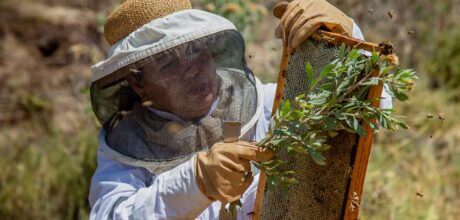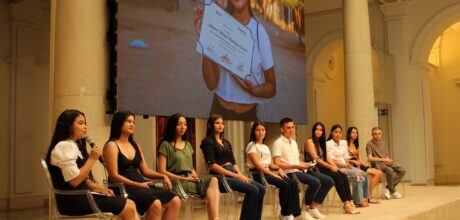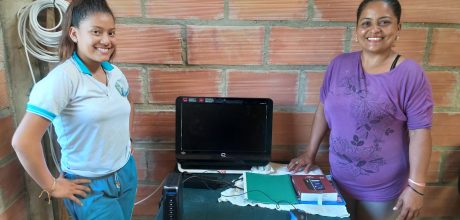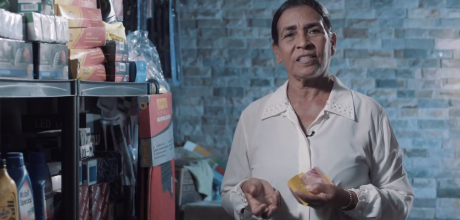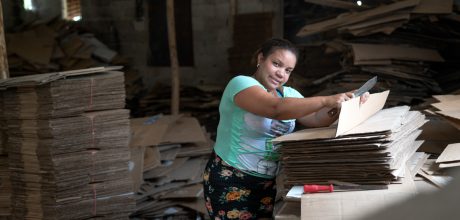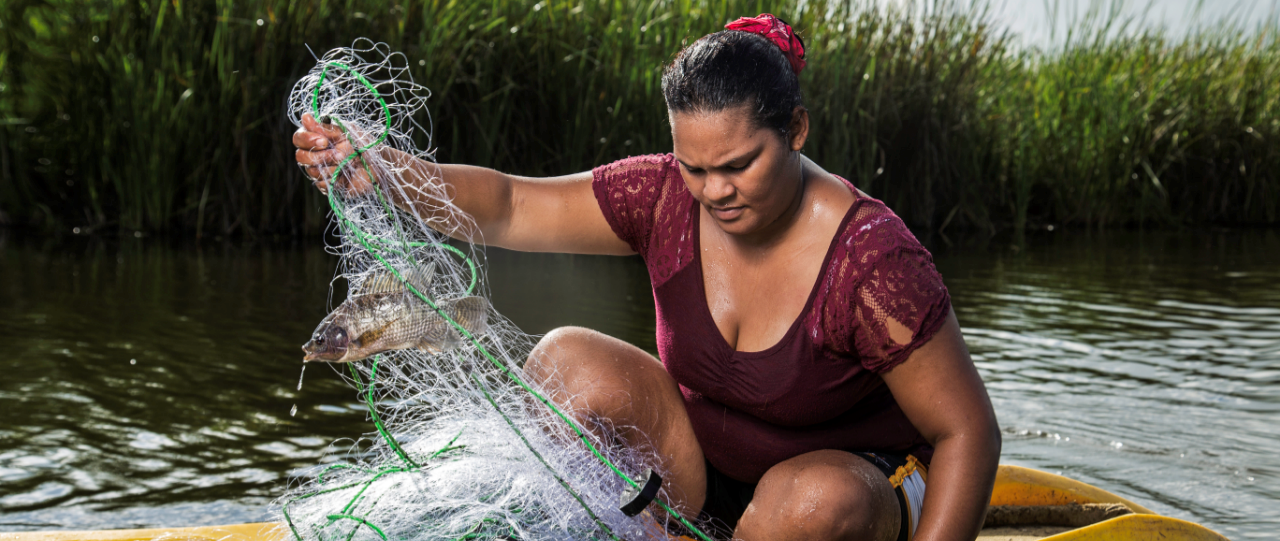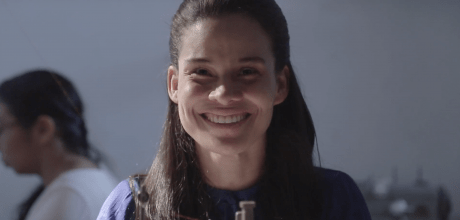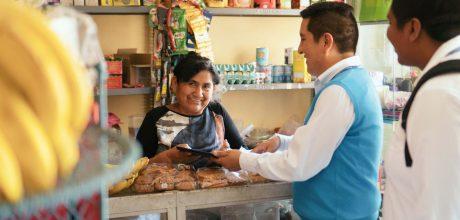If ever there was a type of food with a history, it is cocoa. The Aztecs believed that drinking it gave one wisdom, insofar as it was a bridge between heaven and earth; and Mayan traders were already drinking it 400 years before Christ. It has also been used as currency, and even as a tax; today, it drives the economy of many regions in Latin America.

This is the case in Jobo Dulce, a region in the Dominican province of El Seíbo, where many plantations of this bean, originated in the Tropics, are to be found. The humid climate, together with the type of soil, is perfect for growing theobroma cacao, which in Greek means “food of the gods.”
The history of Leonel Evangelista’s family is closely linked to cocoa farming: as a child, he used to help in his parents’ plantations and for 40 years he has been farming cacao plots, helped by his children.
Although farming techniques are more sustainable nowadays, Leonel has always tried to be a good steward of the environment. An effort for which he has received a certificate of validation for his organic farming methods. This means that his production system is sustainable, that it makes fair use of natural resources and uses no chemical products in growing and harvesting the cocoa beans.
To achieve this, he uses biofertilizers as compost, and organic material to nourish the soil, as well as bio-inputs made of natural ingredients for treating pests and diseases. Recommendations that Leonel has learned from his partners in the Cocoa Farmers Association and from the company that buys his cocoa at the pulp (or mucilage stage) from him, after the beans have been removed from the pod while still covered in this viscous substance.
With each certification the quality of his product has improved, so his sales are increasing. The fair trade ‘FLO’ seal, for example, that Leonel has also won for his business, shows that he works in alignment with ethical, social and environmental values. What is more, his estate has been awarded the ‘Rainforest Alliance’ stamp of approval, after being audited and having complied with its sustainability standards.
Dominican Republic, leader in cocao exports
The Dominican Republic is the world leader in exporting organic cocoa: in fact, 60% of total production comes from sustainable farms, while 40% is classed as ‘fine’ or ‘aromatic’ cocoa, of the highest international quality.
“Cocoa has given me and my family a living. It is a good business, it provides you with enough to save and to look after the environment,”
BBVA Microfinance Foundation, through its local institution Banco Adopem, supports more than 1,500 Dominican cocoa producers. Among them, Leonel, who has been with Adopem for the same number of years as loans he has taken out: nine, which have enabled him to upgrade his business and diversify his products. Now, he also farms organic Persian lemons, bananas, plantain and avocado.
His two children are in charge of the tasks of pruning, maintenance and harvesting, and when required, they take on day laborers. “Cocoa has given me and my family a livelihood. It is a good business, it provides you with enough to save and to look after the environment,” explains Leonel.
He reaches his plantations by bus or on horseback, which is why he wants to buy a vehicle to save on his traveling time, and so that he can make spend more time tending to his farm.
It takes between 300 and 600 beans to make a kilo of cocoa, so any extra help is always very welcome.


